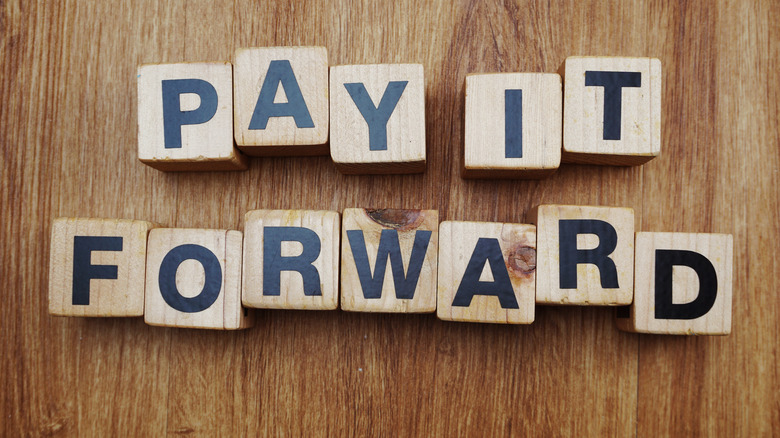Why A Costco Shoppers' Random Act Of Kindness Is Upsetting Twitter
A brief interaction in a Costco set off a Twitter dialogue today. User @BobbyHuggs tweeted that he was at Costco to pick up a few things. The woman in front of him in the checkout line was laden down with items, and he assumed that she worked for a catering business. He said as much to the stranger, to which she replied that she was buying supplies for a woman's shelter. This made the user pause, and he decided to buy all of the groceries for the woman who was stocking the shelter. He ended his tweet, "Please pay it forward if you can."
This seems like a relatively innocuous tweet, but some Twitter users thought that the original poster was on a bit of a high horse to post a story that presented him as the do-gooder. One person parodied the post, "Hey guys I did a nice thing and everyone must know about it I can't do it just for the sheer pleasure of helping someone everyone must know I am a good person!" while another advised, "These stories always much better presented in third person perspective. Pay it forward, without patting yourself on the back." Social media puts people in a tough position — when everyone is posting about their day-to-day lives, it's hard to predict what will strike a nerve with other users.
Is paying it forward self serving or genuine?
Luckily, many other users were quick to congratulate the Twitter user on his good deed and communally encourage the concept of paying it forward. Two early repliers said "You're a good man, Bobby," and "You're good people." It goes to show that you can't please everyone online. Regardless of the desire to post about good deeds or not, the concept of paying it forward is definitely a kind and generous one. Some people even go so far as to start a pay-it-forward chain. One Crazy House has twelve tips on how to start a pay-it-forward chain, like purchasing a gift card to pay for the next few guests at a favorite local shop. There's even a designated Pay-it-Forward Day: April 28th.
At the end of the day, it's hard to say if the user was being self-serving or acting out of the goodness of their heart. The Boston Medical Center defines performative activism as something done to promote one's self rather than benefit a cause. However, there's no way to know if the Twitter user was being performative for social media clout or being genuine. Does it really matter? A good deed was done. If you're inspired by the tweet, maybe go out and pay it forward for someone in need today.

